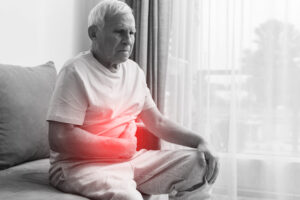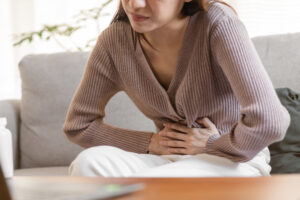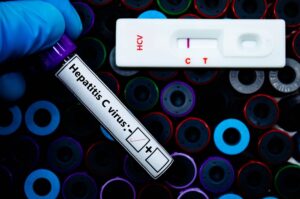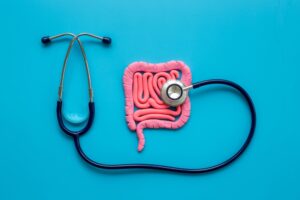
Signs of Stomach Ulcers
Stomach ulcers are open sores that develop on the lining of the stomach or small intestine, but heartburn is caused when stomach acid flows back into the esophagus.

The prospect of dealing with any kind of health ailment is not appealing. It can be even more daunting when the condition in question is as potentially life-disrupting as hemorrhoids. The best way to approach an issue like this is to inform yourself about what you are experiencing, your treatment options, and what you can do to curb the pain and discomfort associated with hemorrhoids. Let’s take a deep dive to answer the question: How do I know if I have hemorrhoids?
A helpful definition of what hemorrhoids are according to Mayo Clinic:
Hemorrhoids (HEM-uh-roids), also called piles, are swollen veins in your anus and lower rectum, similar to varicose veins. Hemorrhoids can develop inside the rectum (internal hemorrhoids) or under the skin around the anus (external hemorrhoids).
It turns out that nearly 75% of all adults will experience hemorrhoids at some point in their life. It is an incredibly common medical situation to face, even if people don’t openly talk about it all that much. Many people are too embarrassed to talk about the experience of having hemorrhoids. However, this lack of information only tends to make the situation even worse for any sufferer.
There are certain causes of hemorrhoids that you should take note of. You need to be sure that you are aware of what might be causing this kind of medical issue in your life.
Hemorrhoids can develop when the pressure in your body’s sensitive lower rectum area increases. This may happen for a variety of reasons, including:
These are all risk factors for developing hemorrhoids. They aren’t the only ones. Be aware that you might develop hemorrhoids if you experience any of these situations. It is also possible that none of these apply to you, but you experience issues anyway. Remember, nearly three-quarters of adults will develop hemorrhoids at some point in their life.
Maybe you are asking yourself: “How do I know if I have hemorrhoids?”. This question could come up if you are experiencing something out of the ordinary but are unsure. In that case, you should look out for certain hemorrhoid symptoms. Most importantly, internal and external hemorrhoids tend to have different types of symptoms associated with them. Let’s break them down based on their category.
Symptoms of external hemorrhoids can include the following:
These symptoms are virtually impossible to ignore. They are often severe for many sufferers, and it can feel as though it is impossible to escape from the issues that manifest with external hemorrhoids.
Those who suffer from internal hemorrhoids might have more reason to ask, “How do I know if I have hemorrhoids?” Their issue might not be obvious at all. They may not even notice them or feel any discomfort at all related to their hemorrhoids. This doesn’t mean that they should be ignored, but it does mean that they might be more challenging to detect. Symptoms of internal hemorrhoids can include:
Both of these symptoms might not cause the physical pain and discomfort that those with external hemorrhoids have to deal with, but these symptoms can still be frustrating regardless. It is best to get this checked out even if you aren’t actively experiencing pain associated with it. You certainly don’t want this to develop into anything more serious.
Treatment options exist for those suffering from hemorrhoids. These options exist for those with either internal or external hemorrhoids. The treatment options can be far less invasive and dramatic than you might have expected. Harvard Health reminds us of this by offering the following recommendations for treatment options:
These are a few treatment options that can help you improve your hemorrhoid situation. If you continue to suffer after trying these treatment options, you should speak with your doctor about additional measures that you can take.
If your hemorrhoids do not clear up after taking various treatment measures, then see your doctor. You should also consider seeing your doctor if you have noticed a significant amount of bleeding. You don’t want to take any chances when dealing with a health situation like this. You can and should visit your doctor if you are concerned that your situation is not clearing up or improving in any way. They can offer you more detailed and elaborate ways to work on taking care of hemorrhoids if nothing else is working.

Stomach ulcers are open sores that develop on the lining of the stomach or small intestine, but heartburn is caused when stomach acid flows back into the esophagus.

Poorly absorbed carbs may ferment in the gut, leading to symptoms such as bloating, gas, diarrhea, or constipation.

If left untreated, GERD can lead to complications including esophagitis (inflammation of the esophagus), strictures (narrowing of the esophagus), or even Barrett’s esophagus, a condition that increases the risk of esophageal cancer.

IBS-C often requires a tailored approach that incorporates dietary changes, stress management, and sometimes prescribed medications to regulate bowel movements and reduce discomfort.

Hepatitis C can affect women differently due to hormonal variations, immune system responses, and unique physiological factors

This connection means that stress, anxiety, and other psychological factors can directly impact gut function, leading to symptoms like abdominal pain, bloating, and irregular bowel movements.

Chronic inflammation associated with IBD can lead to complications such as joint pain, skin conditions, eye issues, and more.

How different types of fiber affect IBS is crucial to creating a diet that supports digestive health without triggering flare-ups.

Lactose Intolerance occurs due to a deficiency of lactase, the enzyme responsible for digesting lactose in the small intestine.

This condition can result from various factors, including poor diet, stress, infections, or underlying health conditions like IBD.

One of the most essential steps in managing IBS is identifying specific triggers and paying attention to your body’s unique responses.

Although the symptoms of IBS can vary widely from person to person, several common signs are associated with the condition.
For Your Visit
Brick Office
P: 732-458-8300
Brick Medical Arts Building
1640 Route 88, Suite 202
Brick, New Jersey 08724
Mon – Fri: 8:30AM – 5:00PM
Sat & Sun: Closed
Neptune Office
P: 732-776-9300
Jersey Shore Medical Arts Building
1944 Corlies Ave. Suite 205
Neptune, New Jersey 07753
Mon – Fri: 8:30AM – 5:00PM
Sat & Sun: Closed
Jackson Office
P: 732-928-2300
706 Bennetts Mills Road
Jackson, New Jersey 08527
Mon – Fri: 8:30AM – 5:00PM
Sat & Sun: Closed
© All Rights Reserved